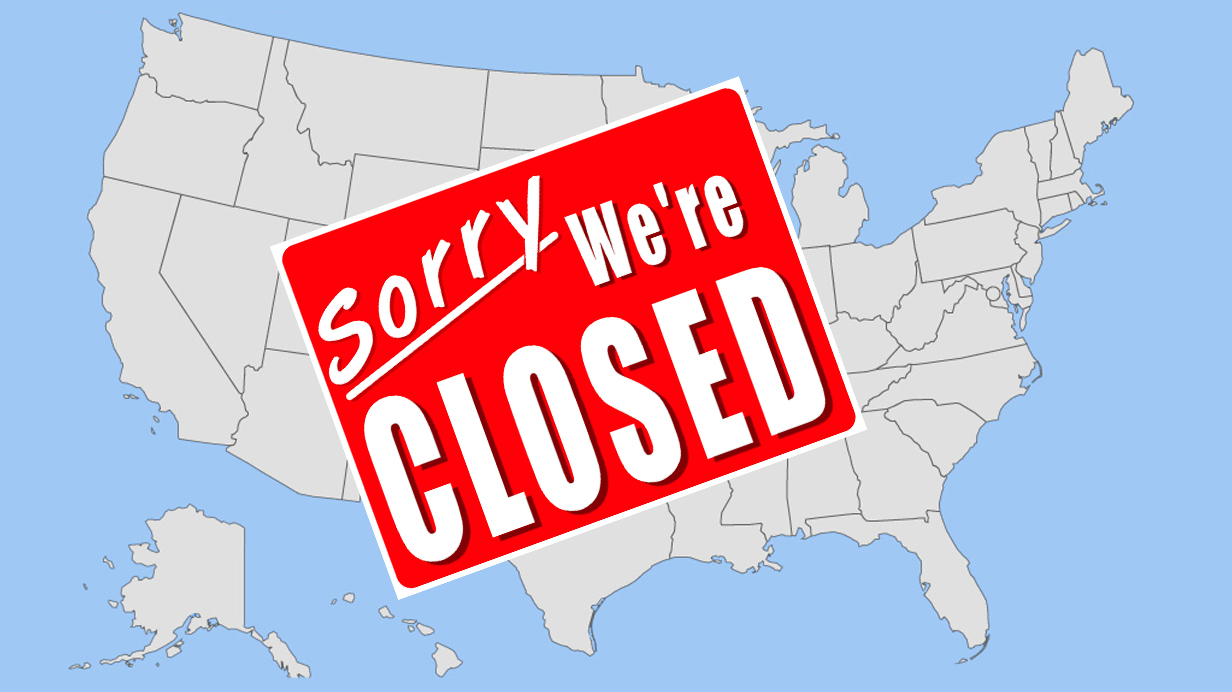
Stopping the spread of Coronavirus is imperative, but as Dan O’Donnell writes, so too is stopping the spread of governmental intrusion on individual liberties.
March 18, 2020
Guest Perspective by Dan O’Donnell
Just like that, it happened. With the stroke of a pen, Wisconsin Governor Tony Evers effectively shut down the state, banning public gatherings of ten people or more in an effort to combat the spread of Coronavirus.
“Our top priority at this time is to keep Wisconsinites safe and healthy by reducing the spread of COVID-19, especially for those who are considered high-risk,” the Governor said in a news release announcing his executive order Tuesday. “With limited tests available nationwide and continued community spread, we have to take every precaution to protect ourselves, our families, and our neighbors.”
As compelling as the need to protect Wisconsin’s citizenry against Coronavirus may be, the need to protect the citizenry’s freedom will always take precedence.
This is, by far, the most restrictive and onerous precaution Wisconsin has ever taken, as it impinges on citizens’ most fundamental rights.
“We know this will disrupt your lives,” said Evers’ Health Services Secretary Designee Andrea Palm in what may have been the understatement of the young decade.
Just like that, everyone’s lives weren’t just disrupted; they were put on hold.
While Wisconsin Statute 252.02(3) does allow the Department of Health Services to “close schools and forbid public gatherings in schools, churches, and other places to control outbreaks and epidemics,” such an order is still subject to Constitutional review.
Even during a public health emergency such as this, a government action that so dramatically infringes on individuals’ rights to freely associate in private places is subject to what is known as “strict scrutiny.”
Were Evers’ order to be challenged in court, the Department of Health Services would have to demonstrate that its action is:
- Aimed at advancing a compelling government interest,
- Narrowly tailored to that interest, and
- The least restrictive means of advancing said interest
Obviously, stopping the spread of the Coronavirus outbreak is a compelling government interest. It may even be argued that so dramatically limiting public gatherings is narrowly tailored to stopping the spread of the Coronavirus outbreak. But could anyone reasonably argue that this is the least restrictive means of stopping the spread of the Coronavirus outbreak?
It’s hard to imagine anything more restrictive.
Worse yet, although the order “makes exceptions for transportation, educational institutions, child care, hotels, military, law enforcement, food pantries, hospitals, [and] long-term care facilities,” there is no exception for churches, mosques, synagogues, or other places of worship.
It is imperative that Wisconsin’s people fully understand the gravity of so easily and willingly allowing government to subjugate individual liberty in the name of collective security.
This presents a clear affront to the First Amendment’s protection of the free exercise of religion as well as to Article I, Section 18 of the Wisconsin Constitution, which expressly provides that “the right of every person to worship Almighty God according to the dictates of conscience shall never be infringed.”
Yet just like that, they have been. And Wisconsin State Senator David Craig is leading the charge against it.
“As state government takes steps to protect the well-being of Wisconsinites, it is also important that state government not infringe upon fundamental rights of our citizenry, including the free exercise rights of individuals seeking to worship according to the dictates of their conscience,” Craig wrote in an open letter to Governor Evers. “Along with providing for physical security, government must accommodate the free exercise of individuals to engage in congregational worship.”
The balance between protecting physical security and the security of fundamental individual rights to freely worship, maintain and operate private businesses, and associate on private property is a delicate one. As compelling as the need to protect Wisconsin’s citizenry against Coronavirus may be, the need to protect the citizenry’s freedom will always take precedence.
This is neither to downplay the severity of this outbreak nor to diminish the need for social distancing to prevent its spread, but rather to remind Wisconsin (and America at large) that individual freedoms are fragile, and as the past week has demonstrated, easily taken away.
The right of the collective to security can only infringe on the individual’s right to liberty when that infringement isn’t more restrictive than it needs to be. Without an exemption for places of worship, Evers’ order unnecessarily (and, quite frankly, capriciously) tramples both the First Amendment and Wisconsin Constitution’s free exercise protections.
More generally, Governor Evers’ decision to take a sledgehammer to Coronavirus instead of using a scalpel infringes more dramatically on free enterprise, association, and property rights than any government action in recent (and perhaps all of) Wisconsin’s history.
It is imperative that Wisconsin’s people fully understand the gravity of so easily and willingly allowing government to subjugate individual liberty in the name of collective security.